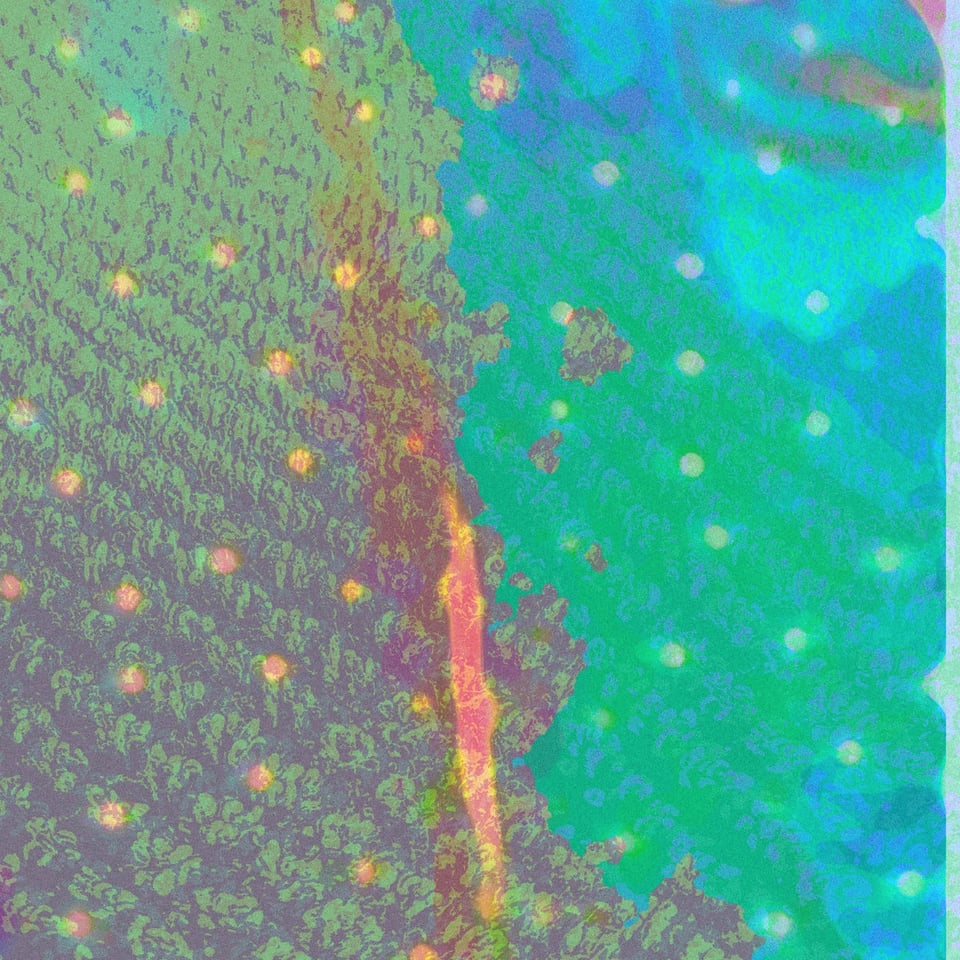#23: Third Wind

I find a modest pleasure in listening to Gulfer. Rarely (give or take a Del Paxton) am I served up something that hits so squarely in my wheelhouse, something that’s so fun and melodic and also melancholic and ostentatiously technical, twisty-turny in the way that wrenches something in my chest. I want to spread the feeling all over town, put it on every playlist. This, more often than not, is what it sounds like in my head.
I was walking my dog just now listening to Third Wind, the band’s just-released fourth LP, trying to think of a succinct genre tag to attach to Gulfer that wasn’t such a mouthful (math-emo-pop-rock-gaze getting a little tiring to think about). I landed on “noodle pop,” which is goofy and I think doesn’t quite encapsulate everything, but it does gesture toward the subtle transformation that the band has undergone since the release of their 2020 self-titled record and their 2018 record Dog Bless, two astoundingly underrated math-emo albums that brought something invigorating and immediate to a usually retro-coded sound.
Both of those albums felt a bit like collages — each song a burst of energy all its own, set between more thoughtful electronic interludes. The most effective moments on those records were often the ones when the band would take a full stop from all the chaos, opening up a pocket of silence to let the next moment land with a more convincing bang (see "Fading," for my money one of the best emo songs we've gotten in the last decade). On Third Wind, things sound a little bit more blurred together, the brash interplay of these complicated guitars working to buoy a more pronounced hook or carry the song toward a seamless and surprisingly graceful finale. It’s the tightest and sharpest release of their career.
Opener “Clean” encapsulates this transition pretty well — a smooth and jubilant pop-rock song that sparkles in a way that Gulfer songs never really have. It’s not that the grit is gone; this is still a busy and brazen rock song. But “Clean” has a certain lightness to it, an airy vocal hook and a carefree sliding riff. The song’s lyrics are noticeably darker, telling the story of an employee who kills her boss, raking in the profits off the back of their labor (“when you work all day and watch the boss get paid / no nice heart lasts long in this game”). But the song doesn’t sound like violence. Instead, it sounds like the freedom that character felt, even if it was just for those first few moments on the run.
I’ve been playing with this argument for a while that the core “emotion” of emo music is not heartbreak or jealousy or spite, those feelings of scorned romantics so often attributed to these kinds of songs. The key emotion of the most powerful emo songs, or at least one of the key emotions, has always been a kind of awe, a naive experience of the sublime from the vantage point of someone who knows so little of the world and has been known to focus on so many of the wrong things (those things often falling in the realm of jealousy or spite I’ll admit). This awe, sometimes but not always spiritual in nature, obviously fuels the works of some of the second wave’s most influential bands (think Mineral’s EndSerenading or Sunny Day Real Estate’s How it Feels to Be Something On). You can trace that feeling to the genre’s contemporary texts — I think about it nonstop when I’m listening to the incredible awakebutstillinbed album from last year, so much of it about seeing the vastness of the world on the road.
My favorite songs on Third Wind put forth this awestruck, overwhelming feeling. “Motive,” for instance, turns its crashing, churning waves into a slowly enveloping refrain, looking forward and back simultaneously — “either way, it’s my mistake / where do we go from here?” — in a way that sounds patient, clarified, revelatory. The crystalline “Cherry Seed” is a little more explicitly existential in between question mark riffs — “and I wonder / when it’s over, will it mean a thing?” At the end of the frantically played but wistfully sung “Vacant Spirit,” a flickering break leads the band to consider the things that connect us all: “every breath on this earth breaks down and stops.” Even the title of the record communicates this wonder, a thankful bewilderment that the band is even still here at all.
What I can say about Third Wind after just a few days — less than a week since it was released (on a Wednesday for some reason) — is that I want to listen to it a hundred more times. I want to keep pulling apart the threads of these tightly woven songs, so dense at first that some elements threaten to take over others entirely. It’s a joy to dive deep into a record like this, to find that awestruck quality bristling between these twists and turns. Gulfer does this so well that we are poised to take them for granted; they kind of feel like a band that could have released two great math emo records in the ‘90s that get forgotten about until a Numero Group-like entity miraculously reissues them for a new audience 30 years later. I write about Third Wind at this juncture — in this free-wheeling and ill-formed way — as a means of doing my part to avoid that kind of fate. I hope a steady, reliable breeze carries this band into the future.
Third Wind is out now on Topshelf Records.

My name is Jordy Walsh, and I’m a writer based in Philadelphia. I Keep a Diary is a newsletter about music, books, and writing. You can follow me on Twitter for more thoughts on all that stuff.

